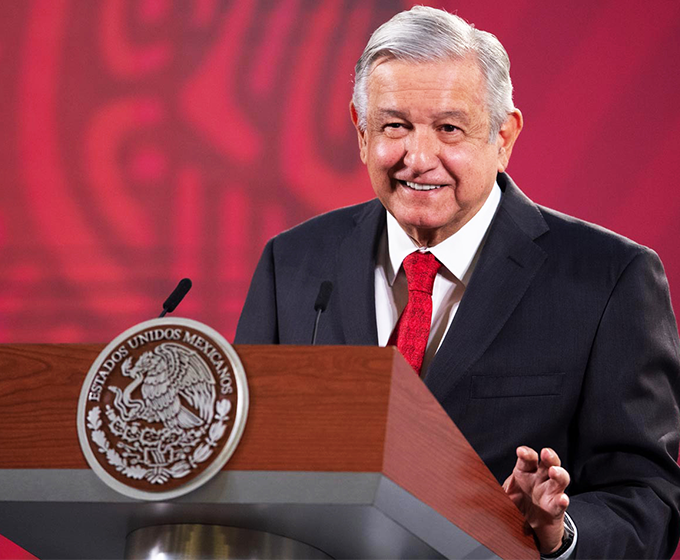
Ang is an assistant professor in the Department of Political Science and Geography at UTSA.
DECEMBER 10, 2020 — Editor’s note: This article by UTSA’s Milena Ang originally appeared in Financial Times.
In November the U.S. government dropped drug-related charges against Salvador Cienfuegos, Mexico’s former defense minister and a retired four-star general. The decision was surprising, given the U.S. record of prosecuting top Mexican politicians for their links with organized crime. Late last year, for example, the U.S. arrested Genaro García Luna, the secretary of public safety under former president Felipe Calderón, and charged him with taking bribes from Joaquin “El Chapo” Guzmán, the notorious drug lord now serving a life sentence in the U.S.
In that instance Andrés Manuel López Obrador, the current president of Mexico, who is widely known as Amlo, claimed the charges demonstrated Mexico’s status as a “narco-state.” Now, by contrast, he has gone to considerable lengths to secure Cienfuegos’ release, successfully threatening a range of countermeasures, including the previously unthinkable expulsion of the U.S. Drug Enforcement Agency if the charges were not dropped. What, then, is different about Cienfuegos? And why did the Mexican government make such efforts to secure his freedom?

The decision seemingly reveals López Obrador’s desire to coddle the army, an institution that has been gaining political power and funding for over a decade. In 2009 then-president Calderón announced the deployment of 2,500 soldiers to his home state of Michoacán to stop rising violence. From there his administration deployed the military to “new hot spots” of violence with increasing frequency. The subsequent administration of Enrique Peña Nieto continued the trend. By 2018, the last year of that administration, 54,000 soldiers were deployed throughout Mexico.
During his 2018 presidential campaign, López Obrador pledged to reverse this escalation, and to “return the army to the barracks.” Yet over the following two years his administration instead expanded its reach, placing the military at the forefront of public security.
In the first months of his mandate he created a National Guard, largely dependent on the army, tasked with “crime prevention, preserving public safety and combating crime.” This militarization has since expanded far beyond security. The army is now in charge of customs and is even helping build one of the president’s pet projects: the Maya train, a $7.4 billion railway.
The growing militarization of civilian affairs was already troubling; the defense ministry is subject to more complaints filed over human rights violations (such as forced disappearance, torture and extrajudicial executions) than any other institution in Mexico. The release of the 72-year-old Cienfuegos suggests that the situation is likely to get only worse.
As defense secretary, he headed the military during its involvement in a number of well-documented scandals, most notoriously the disappearance—and suspected torture and murder—of 43 students in Ayotzinapa plus the Tlatlaya massacre, in which 22 civilians were executed by soldiers after rendition. In both instances lengthy and convoluted judicial processes clouded any chance of holding members of the military accountable. It is in this context of widespread human rights abuses and impunity that the López Obrador government has gone to unprecedented lengths to appease the military by protecting its top brass.
On the evening of November 17, Cienfuegos flew back to Mexico after the U.S. charges had been dropped. Upon his arrival he was formally notified that an investigation had been opened against him. He then headed home. All there is to do now is wait for Cienfuegos to be “investigated and, if appropriate, charged under Mexican laws,” as the U.S. and Mexican governments jointly put it. I’m not holding my breath.
UTSA Today is produced by University Communications and Marketing, the official news source of The University of Texas at San Antonio. Send your feedback to news@utsa.edu. Keep up-to-date on UTSA news by visiting UTSA Today. Connect with UTSA online at Facebook, Twitter, Youtube and Instagram.
Move In To COLFA is strongly recommended for new students in COLFA. It gives you the chance to learn about the Student Success Center, campus resources and meet new friends!
Academic Classroom: Lecture Hall (MH 2.01.10,) McKinney Humanities BldgWe invite you to join us for Birds Up! Downtown, an exciting welcome back event designed to connect students with the different departments at the Downtown Campus. Students will have the opportunity to learn about some of the departments on campus, gain access to different resources, and collect some giveaways!
Bill Miller PlazaCome and celebrate this year's homecoming at the Downtown Campus with food, games, giveaways, music, and more. We look forward to seeing your Roadrunner Spirit!
Bill Miller PlazaThe University of Texas at San Antonio is dedicated to the advancement of knowledge through research and discovery, teaching and learning, community engagement and public service. As an institution of access and excellence, UTSA embraces multicultural traditions and serves as a center for intellectual and creative resources as well as a catalyst for socioeconomic development and the commercialization of intellectual property - for Texas, the nation and the world.
To be a premier public research university, providing access to educational excellence and preparing citizen leaders for the global environment.
We encourage an environment of dialogue and discovery, where integrity, excellence, respect, collaboration and innovation are fostered.